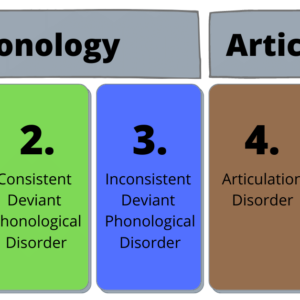The Power of Receptive Language Therapy
$15.00

Course Type: Video – 1 hour
ASHA Course Code: Developmental Language Disorders – 3010
Half of our time spent testing children with language disorders is focused on receptive language. However, most intervention focuses on expressive language abilities.
This course shows how focusing on receptive language intervention can dramatically impact a client’s progress, attention, vocabulary acquisition, and retention.
| Population | Adult, Early Childhood, School Age |
|---|---|
| Duration | 1 hour |
| Credit | .1 Continuing Education Unit |
| Topics | Exp/Rec Language |
| Format | Video |
Financial Disclosure: Scott Prath, M.A., CCC-SLP is a salaried employee of Bilinguistics. Bilinguistics receives royalty payments for online courses.
Non-Financial Disclosure: Scott Prath does not have any non-financial relationships to disclose.
Half of our time spent testing children with language disorders is focused on receptive language. But is this true of our intervention? If you are like most therapists then you spend a great deal of time working on expressive language abilities. As a field we are slowly waking up to the fact that receptive language intervention may have a dramatic impact on a client’s progress. Here’s why:
1. If a child can attend then he is more likely to remember and produce expressive language.
2. Receptive language is larger than expressive language.
That is to say, that for every word we can say we comprehend way more. No one knows for sure the exact ratio but information on second-language acquisition suggests comprehension abilities can be 5X greater than speaking abilities.
3. Attention deficits and poor vocabulary acquisition are two of the most common referral concerns.
When we co-evaluation students with diagnosticians the difference between receptive language and oral comprehension is one area that we are always trying to ferret out.
Participants will:
Summarize how receptive language skills (comprehension, retention, and understanding) create the foundation for expressive language
List six specific receptive language intervention strategies
Explain how to modify intervention for teletherapy to continue to address receptive language skills
Time-Ordered Agenda:
02 minutes–Introductions and disclosures
10 minutes– Research on the relationship between expressive and receptive language
20 minutes– Evidence-based receptive language therapy strategies
15 minutes– The benefits of using receptive language strategies with diverse populations
10 minutes– Receptive language modifications for teletherapy
03 minutes- Closing
Need CEUs?

 Share
Share
 Tweet
Tweet
 LinkedIn
LinkedIn
 Pin
Pin
 Email
Email





